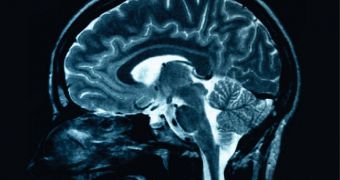According to a new scientific study, it would appear that transcranial magnetic stimulation (TMS) can reduce forgetfulness in patients considerably. The reason why this happens is because the technique can literally reduce the level competition between memories.
In previous studies, experts determined that several specific areas of the brain compete between memories. What TMS does is disrupt this competition, allowing memories to be recalled a lot easier, and helping people who forget things often.
The new work was carried out by experts at the Beth Israel Deaconess Medical Center. The team was led by Edwin Robertson, MD, DPhil, who is an associate professor of neurology at the Harvard Medical School (HMS) and BIDMC.
The expert conducted the work together with neurologist and study coauthor Daniel Cohen, MD. The two set up two experiments, and recruited 120 college students as subjects, PsychCentral reports.
“For the last 100 years, it has been appreciated that trying to learn facts and skills in quick succession can be a frustrating exercise. Because no sooner has a new memory been acquired than its retention is jeopardized by learning another fact or skill,” Robertson explains.
The first of the two tests was a finger-tapping motor skills task, which was then followed by a memory test. The latter involved the participants memorizing and remembering a series of words, the team says.
About half of the test group were asked to perform the two tests in this order, while the other half was instructed to complete the memory task first, and the motor skill assignment later. The team wanted to test if the order in which this was performed had any influence.
“The study subjects performed these back-to-back exercises in the morning. They then returned 12 hours later and re-performed the tests. As predicted, their recall for either the word list or the motor-skill task had decreased when they were re-tested,” Robertson explains.
By administering TMS, the team was able to reduce competition between motor skills and word tasks, enabling both memories to survive. The stimulation process is non-invasive, seeing how the current is created using a magnetic field.
“Because brain cells communicate through a process of chemical and electrical signals, applying a mild electrical current to the brain can influence the signals,” Robertson says. The work was focused on areas of the brain called the dorsolateral prefrontal cortex and the primary motor cortex.
“This elegant study provides fundamental new insights into the way our brain copes with the challenge of learning multiple skills and making multiple memories,” comments the director of the Berenson-Allen Center for Noninvasive Brain Stimulation, Alvaro Pascual-Leone, MD, PhD.
Details of the new work appear in the June 26 advance online issue of the top journal Nature Neuroscience.

 14 DAY TRIAL //
14 DAY TRIAL //